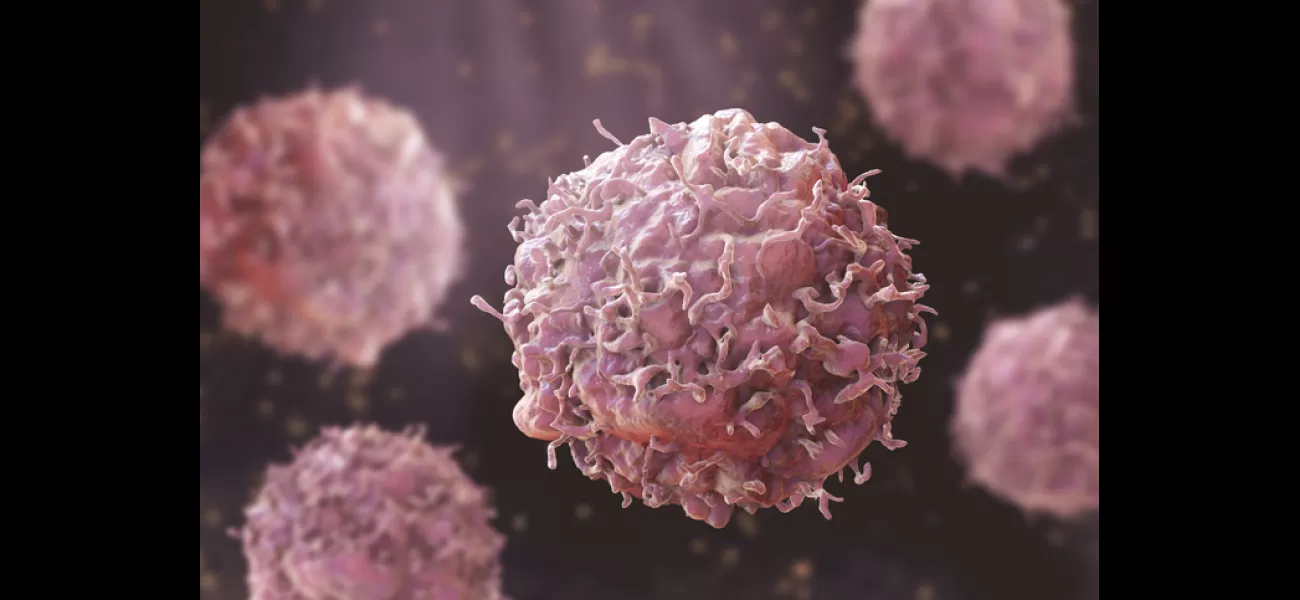Scientists identified a "mutant" gene that helps prostate cancer evade treatment, allowing them to better understand how to treat it.
June 25th 2023.

Cancer is a complex disease with different types of cancer behavior. Recently, scientists have made a groundbreaking discovery that a specific substance called transglutaminase 2 (TG2) plays a key role in the spread and treatment resistance of prostate cancer.
The research team, which is from Nottingham Trent University, found that this substance is abundant in many of the body's cells and it is responsible for driving the progression and spread of the disease. Prostate cancer is the most common cancer in men in the UK, with more than 52,000 diagnoses each year.
Early prostate cancer cells require the male hormone androgen to grow, but they can become androgen-independent, making them harder to treat with existing therapies. Until now, it was unclear how this process occurred.
Dr Adeola Atobatele, a scientist on the study, said that this new finding has opened a significant pathway for understanding other key mechanisms that prostate cancer cells use to evade key regulatory pathways.
The research team found that a mutant form of TG2 is overproduced in prostate cancer and remains trapped inside the nucleus of cells. This restricts the levels of androgen response, making the cancer cells more aggressive and androgen-independent. It also increases expression of the protein mucin-1, which is known to be responsible for the growth and spread of cancer.
When the researchers analyzed biopsies of prostate cancer, they identified increased levels of TG2. Based on these findings, the team suggests that controlling the activity of TG2 and mucin-1 may offer a new therapeutic option for aggressive prostate cancer.
Lead scientist Dr Elisabetta Verderio Edwards from Nottingham Trent University’s School of Science and Technology said that they wanted to explore why some cancer cells become androgen-independent and as a result, more aggressive and harder to treat. She added that understanding this pathway is incredibly important as it plays a key role in cancer’s ability to evade treatment and therefore should be further investigated in terms of potential future treatment and therapy.
The study was published in the journal Cell Death and Disease and involved the Polyclinic Hospital University in Italy. This groundbreaking discovery has opened up a new pathway for understanding prostate cancer and may offer new treatment options for this aggressive cancer.
The research team, which is from Nottingham Trent University, found that this substance is abundant in many of the body's cells and it is responsible for driving the progression and spread of the disease. Prostate cancer is the most common cancer in men in the UK, with more than 52,000 diagnoses each year.
Early prostate cancer cells require the male hormone androgen to grow, but they can become androgen-independent, making them harder to treat with existing therapies. Until now, it was unclear how this process occurred.
Dr Adeola Atobatele, a scientist on the study, said that this new finding has opened a significant pathway for understanding other key mechanisms that prostate cancer cells use to evade key regulatory pathways.
The research team found that a mutant form of TG2 is overproduced in prostate cancer and remains trapped inside the nucleus of cells. This restricts the levels of androgen response, making the cancer cells more aggressive and androgen-independent. It also increases expression of the protein mucin-1, which is known to be responsible for the growth and spread of cancer.
When the researchers analyzed biopsies of prostate cancer, they identified increased levels of TG2. Based on these findings, the team suggests that controlling the activity of TG2 and mucin-1 may offer a new therapeutic option for aggressive prostate cancer.
Lead scientist Dr Elisabetta Verderio Edwards from Nottingham Trent University’s School of Science and Technology said that they wanted to explore why some cancer cells become androgen-independent and as a result, more aggressive and harder to treat. She added that understanding this pathway is incredibly important as it plays a key role in cancer’s ability to evade treatment and therefore should be further investigated in terms of potential future treatment and therapy.
The study was published in the journal Cell Death and Disease and involved the Polyclinic Hospital University in Italy. This groundbreaking discovery has opened up a new pathway for understanding prostate cancer and may offer new treatment options for this aggressive cancer.
[This article has been trending online recently and has been generated with AI. Your feed is customized.]
[Generative AI is experimental.]
0
0
Submit Comment





